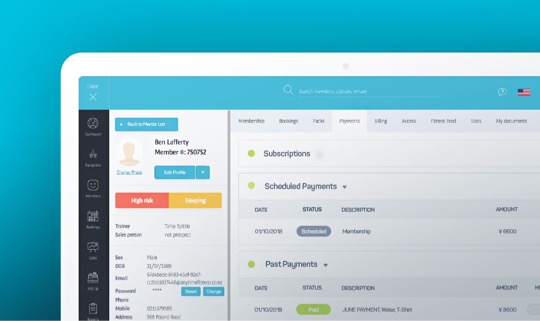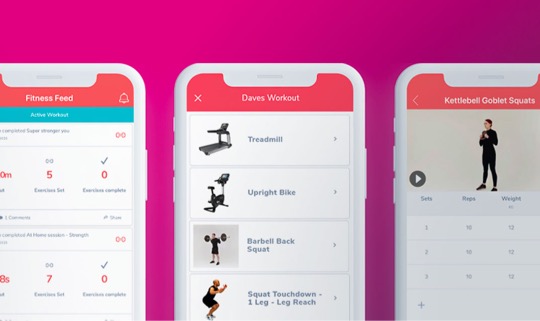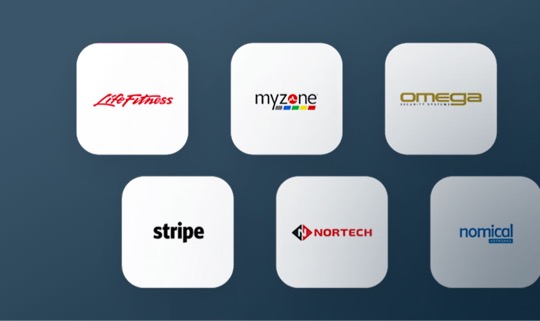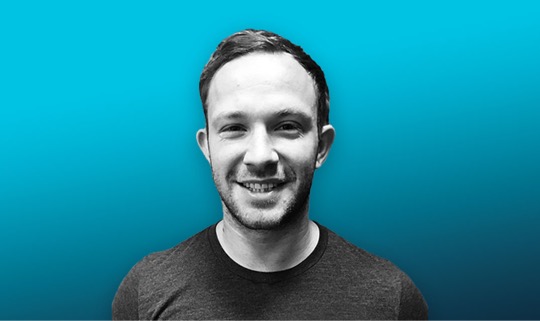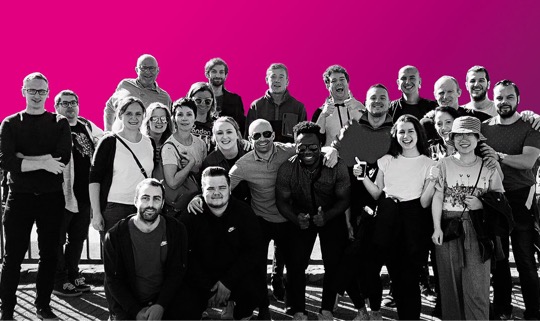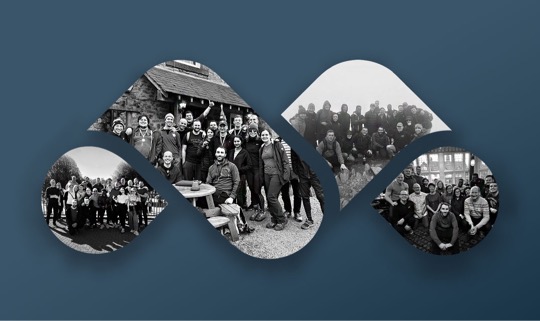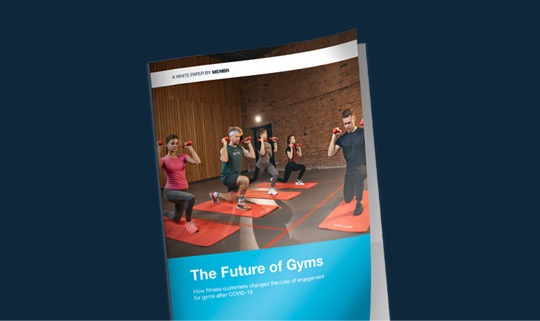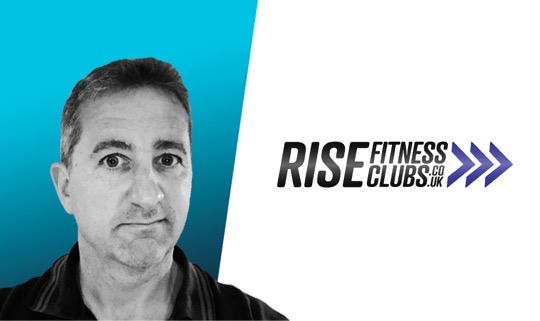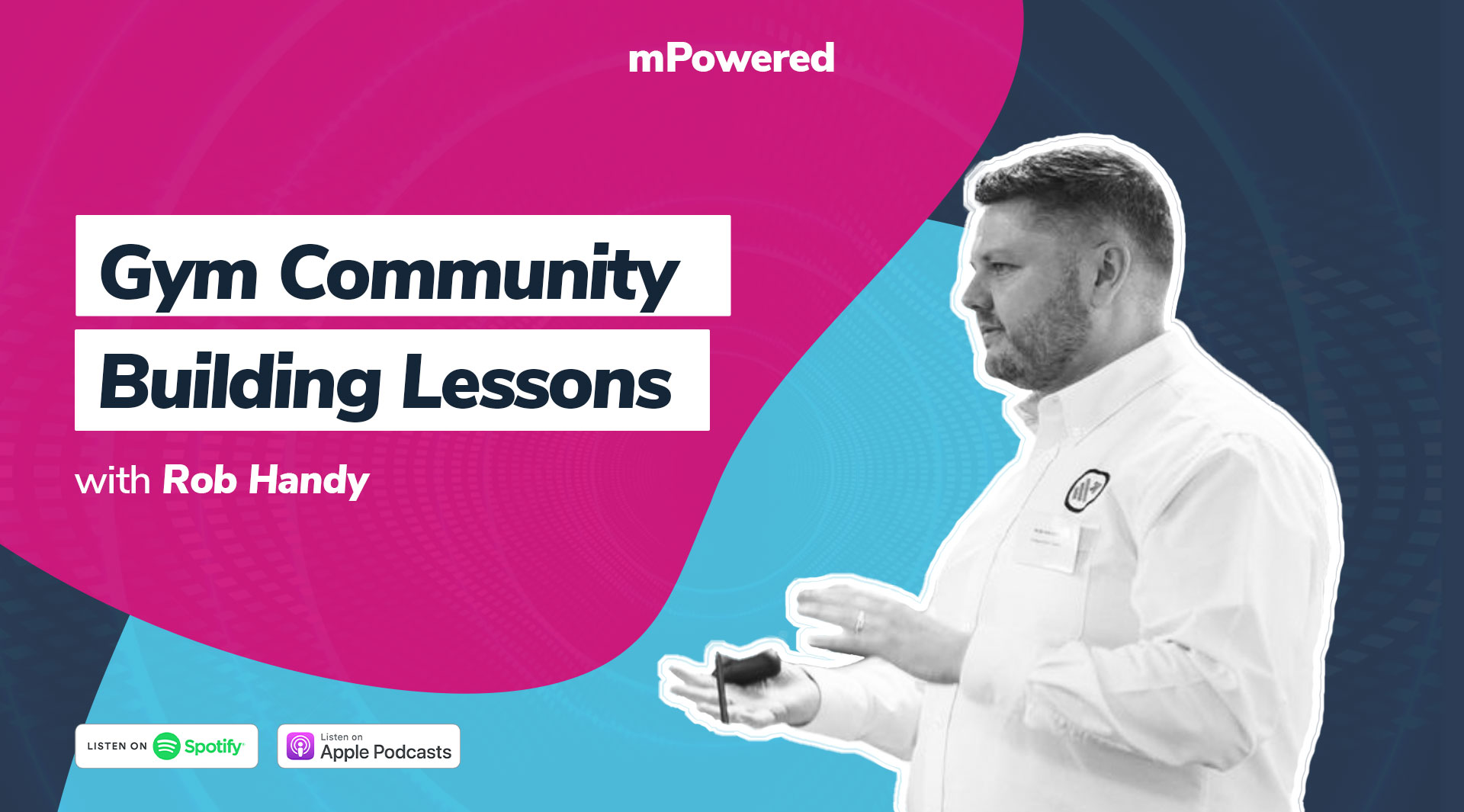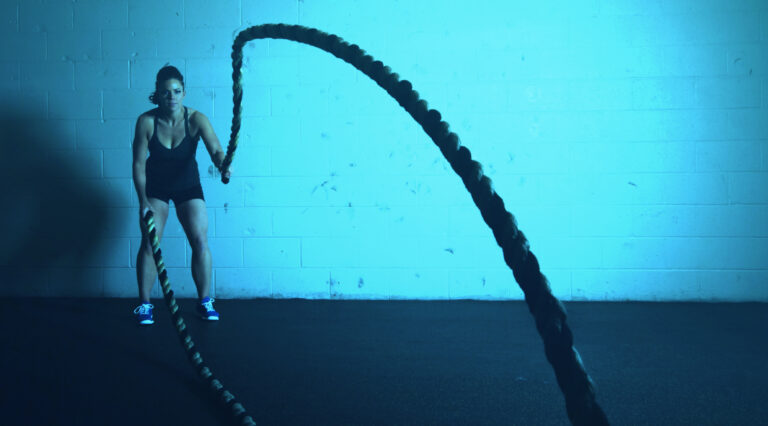[00:00:01] Craig McNeill: Welcome to mPowered. We are here with Rob handy today, who we’re gonna talk about lots of the fitness industry trends and insights from Independent Gyms. Rob, how are you, buddy?
[00:00:12] Rob Handy: I’m good, Craig. Thanks for thanks for having me on. Thanks for inviting me. It’s been a long time. It’s been a long time coming, hasn’t it?
[00:00:18] Craig McNeill: Yeah. No, all good things come to those who wait. So they say, so they say
[00:00:23] Craig McNeill: You’re a busy guy and I’m, I’m really keen. I’ve obviously heard more and more about you over the last year or so. We’ve been, we’ve been networking and I’ve been watching very closely and interestingly at Independent Gym’s rise. So If our listeners never heard of Robert handy, who are you?
[00:00:43] Rob Handy: Who am I? The man in the mystery? Yeah, I’ve been around the industry for, for years now. I realize how old I am. I said the other day I’ve had 20 years experience in the industry. I’m one of those guys started like most as a, you know, the low, I said lower levels as lifeguard working for David Lloyd through uni, come outta uni.
[00:00:59] Rob Handy: Yeah, I didn’t have a job. I just didn’t even think about getting a job. So I ended up sort of throwing myself into the world of David Lloyd. So that’s where it all started from done all the usual operations and sales is where I sort of landed, landed up in really. So yeah, I was there for a while, jumped around club company.
[00:01:15] Rob Handy: So there’s, I got out the industry for a little while. Sort chasing, chasing the money if I’m honest. Yeah. Tried. I tried my handed recruitment and IT sales. My god they were boring. I couldn’t do it to save my life. I was like, nah, no chance. So yeah. Then I jumped back in, so I did a little bit. And then suppose I really sort of cut my teeth, I suppose.
[00:01:34] Rob Handy: Working for star was, was Star Track at the time, but became Core Health and Fitness. So I spent seven years on the supply side. Working on, you know, gym design, gym fit outs, that kind of thing. So and that’s really where I think I found my feet in the industry. I’ve always loved being in and around it, but that’s where, that’s where it came to life for me – being able to sort of have a direct impact on clubs refurbs and new clubs was just huge. And I, I loved every minute of that. So yeah, I was kinda where it, that’s where I was and almost where I am now. And then during that time we set up this little Facebook group to try and help gym owners.
[00:02:06] Rob Handy: It was a little it was more about selling kit to start, but that changed pretty quick to, to become Independent Gyms and where we are today. So yeah, it’s been a bit of a ride the last few years have been very interesting, but so yeah, here we are now heading up Independent Gyms.
[00:02:20] Craig McNeill: This is why I love this industry, Rob, because the stories of where people are and how they’ve got to where they are is, is incredible isn’t it? There’s so many different twists and the line isn’t linear. It’s it’s just, it’s like this and yeah. Yeah. You probably came out because you lost the love of the, of the industry. And actually then you probably went actually the grass isn’t greener, but then you tried something different, which maybe cuz you went out, you probably may have never even tried.
[00:02:50] Rob Handy: Yeah, d’you know. I mean, I, I jumped out the industry. I think it was 23, 24, so very early in my career. Yeah. But I jumped out because in my head I was better than the positions I was in. I dunno whether I was, but I thought I should be, I was basically membership advisor, selling memberships, selling a lot of membership.
[00:03:07] Rob Handy: Yeah. Thinking I should be sales manager, but couldn’t get, couldn’t get a break. So I was like, forget this. Saw an IT sales job. They promised the world, I did it for a year and it was literally cold calling a hundred calls a day headset on didn’t like the job, but it gave me that sort of sales drive. If you like to, the tenacity did that, then I wanted to get back closer to the industry.
[00:03:29] Rob Handy: So I sold swimwear and that gave me a bit more of a, not account management as such, but dealing with independent retailers at the time. Yeah. And then. Yeah, I got, I say, I got lucky. I deserve the job at Core Health, Star Track, but that, that position just came up and I was like, you know what, let’s go for it.
[00:03:45] Rob Handy: Got it. And I didn’t look back. So yeah. Yeah. So I jumped out thinking I was better than I am chasing the money, but they gave me that wider experience. And now I’m back in the industry within it for, for some time now loving life and hopefully using some of those experiences externally to change how we do things a little bit, perhaps.
[00:04:02] Craig McNeill: Yeah. And you, and you’ve You’ve kind of alluded to how Independent Gyms started, and this is a fascinating story, Rob. So come on, tell me, where did this idea come from? And, and why did you choose a certain methods that you did at the.
[00:04:20] Rob Handy: I’m I’m gonna say these kind of, I think about this all the time. And I think now it’s almost almost a happy accident in a way.
[00:04:26] Rob Handy: It was very much at the time, a way of me trying to sell more equipment quicker. We I remember sat home, sat at home. We’ve got a warehouses full of equipment, used equipment that people should want the Midlands area that I worked with. Gym owner just loved a bargain. I always seemed to get on better with the independent operators than I did with local authorities.
[00:04:47] Rob Handy: Never. I could never really crack the local authority market. So I focused all my attention on those individual gym owners. Yeah. I just created a Facebook group and I was thinking I can do some quick messages, bring all my customers together, do some quick messages. I called it Independent Gyms. Cause I thought, no, one’s gonna join Rob’s new gym equipment sale.
[00:05:05] Rob Handy: So I think if that makes sense. So I called it Independent Gyms. Yeah. I’m pretty. Pretty quickly. It became obvious that it was just, it was better suited as a support role for support function. Peer to peer support, gym owners were asking each other for questions and advice. We sort of not steered the conversation, but we just set the ground rules out, no selling no commercial posts.
[00:05:26] Rob Handy: We had one supplier per category in the group. So we had one guy from, I think it was Neil Woodward from Clubright at the time. Yeah. I was obviously there from an equipment supplier. We had Neil from partners and for insurance and the aim of that was the supplier would then give a supplier perspective on a category, but it became this peer to peer support group where gym owners were literally asking each other.
[00:05:47] Rob Handy: What would you do in this instance where you’d buying this from? And it just grew and grew and grew. Right. And as I was watching it grow, I was like, there’s something in this. Yes. So I cut out my own sales. I didn’t really actively sell. I did very well off the back of it because people knew who I was, but I didn’t actively sell through the group.
[00:06:03] Rob Handy: Didn’t actively sell, but I could see the numbers growing. We were sort of 400, 500 members and I was like, we’ve gotta develop something outta it. So we did a, we did a charity event in, in December, 2019. We set put on this little conference. Yeah, half a dozen brands, chuck a few quid in the pot to cover the costs.
[00:06:20] Rob Handy: We put all the ticket sales to charity and we had a few talks and they were just such of a buzz of a day. We got about 50 gym owners in a room. I thought, yeah, we we’re gonna do this now. So that’s where we that’s where it all kind of started from really. Wow. And obviously pandemic hit, that’s a little, that’s a different, different story altogether isn’t it?
[00:06:36] Craig McNeill: In terms of utilizing that then is kind of the problem was there or the opportunity was there that you’re actually given a community. Independent gym is to actually talk to one another without the competitiveness, because I’ll say it, it’s actually really interesting to watch the competitive of, of the fitness industry.
[00:06:56] Craig McNeill: And everyone thinks they’ve got to protect what they’re doing. Someone else will steal it and borrow and use it. Yeah, actually that. That’s that that is a limitation of what we’re actually trying to do is we’re trying to make the world healthier.
[00:07:12] Rob Handy: yeah. It’s, it’s strange. Isn’t it? When you think about the whole, the function of the fitness industry is to help people get fit and healthy, but then as operators, historically, we’ve been quite sort of inward looking with reserve.
[00:07:23] Rob Handy: We don’t like to show what we’re doing and they don’t like to work with people. Mm-hmm . If you are part of PureGym though, you’ve got that to 300 per network to lean on. So they’ve got what we, what we’ve effectively created already in place. Same with the, the big chains, David Lloyd. They’ve got that support.
[00:07:38] Rob Handy: Mm-hmm but the independent guys have never there’s there’s been attempts in the past by various bodies, but they’ve never really landed. So we’ve managed to, like I say, happy accident, pull together this community that, that is ticking those boxes. To a degree. And it’s weird to think that it was never done before.
[00:07:56] Rob Handy: There was never a formal body for these guys before there’s been smaller groups and there’s some really good sort of, sort of support structures. Like the IFPA was great for those training type of gyms. And there’s those sorts of bodies that popped up, but there’s not been this one overarching sort of business or support structure for the independents.
[00:08:15] Rob Handy: So hopefully we’ve hopefully we’ve created that and we can grow from here.
[00:08:20] Craig McNeill: Definitely. And you’ve just done one of your conferences. So you’ve also had a, a successful summer conference. So what was, what was the success of that in terms of how that’s going? Cause I know you’ve done a few now and these are building?
[00:08:36] Rob Handy: Yeah, that’s right.
[00:08:37] Rob Handy: So I mean, part of the, the overall business of Independent Gyms as you, like, we, we’ve got a few aims and one. The community. So we wanna grow a community for support, but then we also wanna offer in person events as well. So face to face events. So we’ve got two big conferences each year that we aim to do.
[00:08:52] Rob Handy: So we’ve have a summer and a winter conference, and then we’ll do workshops and things throughout the year as and when they’re needed. But these workshops for me are the touchpoint twice a year, touch points with face to face, sort of communication with, with our members, with our suppliers and bringing everyone together.
[00:09:08] Rob Handy: I’ve always, I’m a bit of a social guard, but I’d rather be face to face. Tele sales, which is why I didn’t like the tele sales job when I was younger. Yeah. But if I can bring people together in a room that can lean on and learn from, that’s kind of the aim with those conferences. Now we started them, the charity event that we did 2019, which was great.
[00:09:28] Rob Handy: And that was really, that was a burst. And I thought this is the first one we’ve got 50, we’re gonna grow. This is gonna be huge. COVID obviously paused it for a while. And then we, we did two off in 2021 that were, that were good, but they were very impacted by COVID from, the first one had people traveling.
[00:09:46] Rob Handy: It was two weeks after lockdown. People were going on holiday school, holidays and COVID was rife. So those two were tough, but this last one we kind of, I don’t wanna say we nailed it because we’ve still got room to grow massive growth within the events that we were putting on. But we really managed to pull together a huge day.
[00:10:02] Rob Handy: We had 35 brands supporting as well. So we created this expo area and we had three stages with, with talks going on throughout the day. So they were covering all sorts of different topics from retention to say of the membership sales were not the typical sales process. It was just sort of educational talks with tangible takeaways is what we tried to put on.
[00:10:22] Rob Handy: Yeah. But even around those events, it’s more about the community. It’s more about bringing together a hundred plus gym owners in a room with partners and suppliers as well. Cause for me, it’s not about, it shouldn’t be an us versus them in terms of owners and suppliers. It we’ve, we are all essential to each other in a, in a way.
[00:10:40] Rob Handy: So gym owners need suppliers, suppliers need gym owners. So it’s more about bringing this community together. To learn from each other and support each other. And then hopefully the independent sector will keep growing each time we put these events on. So yeah, the last one was the biggest to date. I think we had a 110, 120 gym owners turn up on the day, which was double from our previous event.
[00:10:59] Rob Handy: And then we’re gonna do again in December. Hopefully double again. That’s the aim anyway. Yeah.
[00:11:06] Craig McNeill: It’s, it’s awesome to see that growth as well. And also from your learnings as well. So what, what were the things that you learned from the two conferences last year and how did you take those learnings into into the summer conference, if you don’t mind me asking that?
[00:11:19] Rob Handy: Yeah, there’s a few, there’s some obviously straightforward, easy operational kind of bits that we we learned from. So we changed the layout from the December to this one. That’s quite, that’s just a bit boring, I suppose. It’s making sure the layout works, but it’s more realizing what gym owners want from an event.
[00:11:36] Rob Handy: Yeah. Now we put on, we had one stage in December and we had five, six talks, but we had a lot of waiting around and the talks were great, but there was a lot of dead space. Now having, I had an idea for the event where I’ll see it in five years, time mm-hmm and I looked at what performex did they broke out obviously Steve Orton’s event. And what performex did in March. Very much a con sort of that consumer element. They almost did what we wanted to do in terms of the Forbes talks and the different themed stage areas. So we are transitioning to that, but we’ve gotta do in stages as we go. So we, we, we, first thing we thought of was let’s fill the talking schedule. So instead of having five talks, we had 11 talks. We doubled that number and that gave gym owners more choice and more, more of a pull. I suppose we could say, we’ve got these names coming to talk. It gave a wider, created a wider audience, more gym owners wanted to be in the room, but that was just part of it as well.
[00:12:33] Rob Handy: And it, we just picked up on loads and little bits like that, that we just had to tweak and we’ll keep growing and we’ll, we’ll grow again with the caliber of speakers, we’ll grow again with the brands that we bring on board. The partners are gonna be the interesting one. Because we’ve gotta get enough gym owners in a room for the partners to get value, but we had some really good feedback from everybody that joined us.
[00:12:53] Rob Handy: So we’re happy with that as well for now. Yeah. But we’ll just, we’ll just listen and learn. Every time we do an event, we’ll talk to the gym owners. We’ll talk to the partners, we’ll talk to the speakers and we’ll take their feedback and just improve each time. If we can, if we can improve it. If we can’t, we just have to be realistic about it.
[00:13:09] Craig McNeill: Absolutely. And that sounds so simple when, when said in a, in a way. So powerful. So let’s, let’s do something on real time then. So everyone who’s listening from managers to trainers, to gym owners. They have a community as well, just like just like yourself, different concept, but still the same community.
[00:13:32] Craig McNeill: How can we help gym owners do something similar to what you’ve taught through that journey there for the last two years, you’ve built your community. You’re offering value and without mentioning kind of visit frequency, the. The content that you’re providing and the level of value that you’re providing, you are seeing more and more use cases, how people are getting more use from Independent Gyms.
[00:13:58] Craig McNeill: So
[00:13:58] Craig McNeill: I’m thinking members, right? We’ve got community members. How can our listeners take some quick wins from what you’ve just took for your last couple of years and how can we help gyms create better communities? Let’s start with there. Shall we? So what, what would be the first,
[00:14:14] Craig McNeill: what would be the first thing you –
[00:14:16] Rob Handy: So for me, I think, I think what we say over the last few years is the.
[00:14:20] Rob Handy: The, the gym mod, not the gym model, so much changing, but the, where, where the members utilize the interaction is probably different. Used to be very much about visiting a club. Yeah. All your conversations were in that club with the gym owner of the staff, whoever it may be and you went away and then you do your own thing.
[00:14:37] Rob Handy: Now, I think it’s more about being involved with a community. So the, yes, it’s a gym, but that gym has a community around it. And it’s how do you keep engaged with those members? Not just when you’re in the gym, cuz in theater, that’s the easy bit. I walk for the door and you’re having a conversation. It’s out of the doors.
[00:14:51] Rob Handy: How do you keep them in your mix if you like? So I relate to what we’ve done and with our business, it all came out of that simple Facebook group. Mm-hmm and I would say, I say most Independent Gyms have a Facebook group for their members and that’s kind of the focal point. We’ve got a membership software, the focal that’s their, their thing.
[00:15:09] Rob Handy: Yeah. I think it’s about having a variety of. So, yeah, quantum activities are a variety of interactions, not just who’s training today. What we saw through lockdown, when nobody could go to the gym was online quizzes and, and challenges, and all sorts would pop up to engage with their members and that would keep them as part of the community.
[00:15:31] Rob Handy: So I think it’s about providing variety for your members, but I think it’s all potentially letting the members. Lead the way in that community as well. So it’s why, what I do within our, within our Facebook group, I kind of sit in the background. I’ll post weekly and sometimes, sometimes more and I’ll have my ideas, but I’ll sit and listen and see where the conversations are flowing and what they’re talking about and what they’re after, which drives a lot of our partner discussions.
[00:15:57] Rob Handy: But I think gym owners could do the same and let members interact with each other. It’s not about the gym owners. It’s about that community. Which is why I sit in the background. And I just kind of guide where it’s going. I don’t force it in a direction, but I guide where it’s going and I listen to what they want.
[00:16:10] Rob Handy: So if a gym owner does the same and picks up on what they’re after, that’s probably the best thing to do in terms of building and engaging that community. Yeah. And it, it’s all kind organic. I think you just gotta let everyone have, well, gyms have a niche. So you might be a body building theme, gym. You might be a small group training gym.
[00:16:29] Rob Handy: So that niche will probably dictate the general tone of a conversation within a, within a community, but it’s gotta be organic and it’s gotta grow how the members want. So it’s it’s an interesting area for gyms to create community. It really is.
[00:16:43] Craig McNeill: It is, it is. And you guys are doing something right now, aren’t you with, with Myzone in terms of how, you’re utilizing your community, you are utilizing your network and you’re bringing those two things.
[00:16:57] Rob Handy: Yeah, that’s right. So we’ve I’m a bit of a Myzone fan myself and I’ve always loved the challenges of getting involved in challenges. When I was at Core Health, we’d do a challenge every two or three months, and you’d throw yourself into it and get you moving.
[00:17:09] Rob Handy: So we were thinking sort of what can we do for our gym owners to help them engage their members? Myzone’s very popular. So we’ve essentially, we’d essentially live in an independent gym’s gym versus gym challenge with Myzone. The aim is to, for the gym, give the gym a tool to go to their members and engage with them through what is typically the quietest month of the year for any facility. So from today until end of August, mm-hmm , we’ve got 30 gyms that are pretty much going head to head for the title of, of gym, sorry, king of gyms effectively. So the winning gym is the, whoever has the highest average meps from their members wins the challenge by the end of end of August.
[00:17:48] Rob Handy: But what, but what that means is the gym owner can engage with any and all of their members to keep them active. They might be on holiday. They might be off to Mexico. They might be doing the school run and can’t make it to the gym enough, not the school run cause it’s August, but they might be busy with life looking after the kids, but it gets their members exercising more, you know, a time when they probably would’ve let things slip a little bit, but it’s but the good thing with it, we’ve got again, another Facebook group for that.
[00:18:14] Rob Handy: So all the gym owners and the members that are involved can jump in – everybody’s posting pictures of their workouts, tagging in as banter. Some people are doing 20 minute workouts. Some people are doing two hour workouts and it’s a real buzz mm-hmm , but it just brings that community together on an individual level for each gym.
[00:18:32] Rob Handy: So engages with their members, but it helps us with our gyms or we’ve got 30 gyms that are now they know who each other is. There’s, there’s a community that the small community there involved and yeah, they’re just going for it.
[00:18:44] Craig McNeill: Yeah. I love it. Absolutely love it. So
[00:18:47] Craig McNeill: In terms of talking about the Independent Gyms and, and kind of going into how recognized the value and experience and insights that they have. Do, do you, do you feel that the health and fitness industry has enough ears to the Independent Gyms?
[00:19:04] Rob Handy: I think it’s a changing landscape in that respect over recent years. I think, I think they’ve always been involved or talked about in a conversation. But not as detailed as local authority, key accounts called ’em chains, private sites. Right? So I think those guys are set up and they’ll have resources and people involved that can provide information and stats and that kind of thing.
[00:19:31] Rob Handy: So they, they feed up into the bigger conversations. Independents, particularly from, from where we sit are typically the owner operated one man band kind of setups, but a lot more professional now. But there’s never really been a one, a quick way of collating statistics information or whatever it might be out of those independents to feed into and alongside key accounts and local authority. UK active, I say opened their eyes is a wrong term. We work closely with UK active through lockdown, and we have plans around the independent operators and an independent operators council. And that’s coming back now. So it’s definitely. It’s an area that a lot of people are looking at. And we are also finding that now, whether we’ve just been able to pull together this one body that people want to use to access the independents.
[00:20:23] Rob Handy: I don’t know. We are getting approached every day, two or three different brands of asking to partner with us. To help and support independent operators. So I think it’s definitely changed. I don’t think, I don’t think independents will really listen to much as much as from a practicality point of view. I think it was hard to get the common voice from an independent operator. Yeah. Just because everybody’s is, is isolated or silo, but now we’ve got this opportunity to feed into the bigger picture and that’s kind of what we doing, or what we want to do alongside the likes of UK Active CIMSPA, EMD UK, all those, we wanna line up alongside those bodies.
[00:20:59] Rob Handy: We wanna be, we wanna be seen in the same light as those mm-hmm , but we wanna feed the voice in for them. We’re not a lobbying group as such. We wanna. We’re a commercial entity. We wanna provide commercial savings and benefits to our members, but we very much also wanna pass this voice and use and, and maximize the voice of operators, independent operators through the likes of UK Active.
[00:21:20] Rob Handy: So yeah, to, to, to cut it, show up. They never used to be listened to, but I think they will be moving forward.
[00:21:28] Craig McNeill: And also being listened to, but also to action. It’s also a much more palatable kind of way to go and say, okay, well, why don’t we go and try this? And independents can literally do it this afternoon.
[00:21:41] Craig McNeill: All right. I’ll try, try it. Okay. If you think that will work, let’s give it a go. So it works both ways. It’s a push and a pull.
[00:21:49] Rob Handy: Yeah, very much so. And I think that’s where the Minton report. David Minton’s report the leisure database company. Their report showed independents, coming out. Everybody had a tough time, but independents coped that bit better.
[00:22:00] Craig McNeill: Mm-hmm
[00:22:01] Rob Handy: But I think part of that was because independent operators can act much quicker. They don’t have to jump through hoops. They don’t take red tape to, to, to rip through the owner can spot a trend, have a think and go, right. Let’s do this. We’re gonna go. And that’s why we saw through lockdown was. The adoption of digital was pretty rapid.
[00:22:21] Rob Handy: Although most of our guys went through routes, such as Instagram, Facebook Lives, that kind of thing, affordable digital solutions. When that dropped off, they could stop it pretty rapid they wasn’t invested into the big, expensive setup. Yeah. If they saw a particular trend or a particular brand that was doing very well, they could react to move quickly and could make that decision just like that.
[00:22:41] Rob Handy: Mm-hmm whereas a ch somebody like PureGym, I use them as an example. They’ve probably got a process to go through to make a significant change within their business. But I think that’s where the independents are really flexible and agile. Yeah. And they can make that change pretty quick and they, when they want to.
[00:22:57] Rob Handy: So as long as they it’s a balance of making the right change or making rash decisions, but even if it’s a rash decision, generally they can change it quickly as well. So if it doesn’t work, they can, they can react to it. And
[00:23:10] Craig McNeill: There’s also a link there to our, other topic was about the independents have probably got a stronger community as well.
[00:23:16] Craig McNeill: So when you’re part of a community, the, the members are probably less likely to to kneejerk reaction and, and cancel memberships to an independent than a, than a key account where there is no relationship. There is no personalization. They didn’t, they, they don’t know me anyway, but with, with an independent, I might, I might even know the owner’s first name.
[00:23:36] Craig McNeill: You might train me directly in a couple, and I’m absolutely completely in a different place of what I feel is value to, to him from my membership fees.
[00:23:48] Rob Handy: Yeah, very much. So I think we touched on this again in, when I sat on the panel at the leisure database Evolve event. And there was a question I think, I think about, I think, I think the gyms create communities as well, PureGym, David Lloyd, they create communities cuz it’s about the person and the people that are running it. But when it comes to the crunch and you are thinking, do I cancel Sky or do I cancel my gym? If you’re part of an independent and you know, that gym owner and, you know, the staff, you know, it’s direct, hit on that revenue.
[00:24:17] Rob Handy: Mm-hmm and it relates back to that person paying their mortgage or paying their bills when it’s part of the bigger chain. Yes. You know, the manager, but you’re probably sitting there thinking, well, the PureGym are bank rolled anyway, they’ve got investors, that’ll be fine. Doesn’t matter. It doesn’t have a direct impact.
[00:24:31] Rob Handy: I just, and I’ll still be friends with that person. So I think that’s where the community is probably stronger in an independent because it’s so close to the owner, so close to the operator.
[00:24:41] Craig McNeill: Yeah. As a perfect example within Cross Fit there as well. Isn’t it? That that’s an affiliation to a, a big organization, which has got bank notes galore.
[00:24:50] Craig McNeill: Yeah. But a Cross Fitter at a box in Sunderland is paying that gym owner. Yeah. And they don’t think of the Cross Fit which is like the PureGym concept.
[00:25:00] Rob Handy: Yeah. Very much. And I’ve, I’ve always Cross Fit, I think is is an interesting one for me, cuz the way we work, we don’t generally include franchise sites as part of our group.
[00:25:09] Rob Handy: Yeah. Franchise have their own network, their own support network. So we can’t really do much to help them. Other than what they’re already getting. Cross Fit we looked at the opposite. My understanding of a Cross Fit box is generally they’ll pay a license fee to call it Cross Fit. Mm-hmm that’s about all they get.
[00:25:24] Rob Handy: They should, it’s a fee to user brand. And that club is still very much independent and a Cross Fit box is generally very staff intense, if you like. So it’s a lot of session driven instructor driven sessions. Yeah. Timetable sessions. And I think the they’re very close to those instructor and those members and they usually pay a little bit more than your average gym as well for the privilege.
[00:25:47] Rob Handy: So it’s yeah. Cross Fit boxes are interesting one because it’s that huge global brand, but very much on a local level is the owner operator. Yeah. Cause it was that there was a thing that I can’t remember a couple of years back now. Wasn’t that there, where. There was a bit of a backlash against Cross Fit facilities.
[00:26:02] Rob Handy: I think the original owner said something. I can’t remember exactly what it was. And a lot of them just went, right, we’re not Cross Fit anymore. Still doing the same thing, but we’re just gonna be yeah. Functional fit or whatever it might be. Yes. So they left the Cross Fit brand and that’s where I think the community works because they could step away from this global brand globally recognized brand and still carry on as they were.
[00:26:23] Rob Handy: Delivering the same sessions to the same members and no real change in that environment for them.
[00:26:28] Craig McNeill: So in terms of, we, we’ve alluded to kind of the, the difficulty in the last couple years, what, what have you seen and what are you proud of in terms of what you’ve seen in terms of people adapting and using the word agile and what, what are the most of changes?
[00:26:45] Craig McNeill: Do we. We’re now seeing from us being in the position where we’ve had to do some changes,
[00:26:52] Rob Handy: There there’s been a lot. It’s been a, there’s been some positives and negatives. I mean, it’s been an interesting few years and we know that. Strangely for me, I think the whole sleeping member scenario has brought gym owners to life.
[00:27:06] Rob Handy: And now it, somebody, I, I, I’m gonna quote you Harvey from Ashbourne Management. He used, we was doing a webinar and he used a phrase, a sleeping owner is more dangerous than a sleeping member. And I thought that was genius because yeah, we all knew sleeping members were a portion and we rely on that.
[00:27:20] Rob Handy: The pandemic wiped them away. And let’s say everybody lost 20% of revenue purely because of that. Then we had to think on our feet. To grow that revenue back to where we were. But at that point it was like, let’s not have any more sleeping members. Let’s try and engage with every single member that we’ve got.
[00:27:36] Rob Handy: So none of them become sleeping. It’s it’s still gonna happen. But I think it just made gym owners open their eyes and think, right, we now have to lose any element of complacency that there was. And engage with all our members. And I think that’s as tough as it was going through that process. I think it’s, it’s opened the eyes of the industry and our owners and operators as well to go forward.
[00:27:58] Rob Handy: So that for me is, is, is great. We, we see a lot of gyms as well, away from the sleeping member conversation, a lot of gym owners that had struggles, but, and now coming out with other side of it and expanding or re refitting. Or were looking at extra sites, which I find really fascinating on how, when you think about the cost of living and everything that goes on in the minute and landlord issues, and there’s, it’s, it’s like an never ending list of issues that businesses are going through, but we are still seeing gym owners saying, you know what, let’s go for it.
[00:28:29] Rob Handy: Let’s add site two, let’s add site three. We’re not gonna sit as a single site operator anymore. We want to be five to 10 sites and they are going for it. And they’re genuinely managing to, to, to find the locations and open those extra sites. So I love seeing that as well. I love seeing a new gym open – when I’m on Instagram and I find random account pops up I’m like, hang on, who’s this and dig a bit deeper and it’s like, yes, there’s another new independent gym coming out.
[00:28:52] Craig McNeill: So, in terms of all, all your kind of exposure to who you’re speaking to and what you’re seeing from the community of, of gym owners etcetera, gonna ask you quite a difficult question. So we’re gonna, we’re gonna bring it down to three habits that you see from successful gym owners.
[00:29:11] Craig McNeill: So we, we may have read the wonderful Seven Habits for Effective People book. Seven’s too many for me. Seven’s like it fills my brain up, not 1, 3, 5, the power of three for me, power of three enough. So in all seriousness, what, what would you say? And I told you it was a difficult question. What would you say the three habits that you see time after time, which just float to the top from gym owners from all stretch of, of what you see in the last 20 years,
[00:29:46] Rob Handy: Yeah, You’re right. This is a difficult one. And I dunno whether these are habits or traits. Yeah. But it’s sort of three sort of behavioral traits. Let’s call them that instead. But it’s on that mix on that sort of on along those lines. Yeah. I think the first one particularly lately, and probably going back a while is resilience because historically an independent gym has been more, and I use this in a polite way and a lot of them have been for the owners, have been jobs, not businesses because they’re usually smaller, maybe not set up in the structures that other gyms have, going back 20 years this is, So the resilience to keep going, when the thought of getting rich off a business, that’s what a lot of people do their own business. Cause they wanna make some good money, but a lot of gyms end up making a job for themselves as opposed to business.
[00:30:30] Rob Handy: So the resilience to keep going but even more so in recent years when, You don’t know, you know, we locked, we closed one day or over the next, and now we are kind of out the other side of it, but costs are increasing. And all these issues that we’re getting hit with. So resilience is a huge thing. And I think as an owner, it’s all down to them, paying the rent, paying the staff, paying the bills, it’s all down to that owner.
[00:30:54] Rob Handy: Chains. And so on is a bit different. The operator, the manager, the general manager just has to sell some memberships and keep members engaged and they don’t have to worry overly about those other bits cuz they’ve got the head office support there. So resilience is a huge thing.
[00:31:08] Craig McNeill: Yeah, love it.
[00:31:09] Rob Handy: I think foresight is another.
[00:31:11] Rob Handy: So being able to not necessarily predict, but to spot trends. Look out for the next thing, whether that’s an next bit of kit or the next style of training or the next, I dunno, the next, just the next, whatever it may be within your business and having the foresight and open eyes to, be aware of it and, and open to, to change.
[00:31:31] Rob Handy: And then the last one mixed into that is agility. And I think we take touched on that earlier for an independent, the ability to change quickly is probably key, because if they don’t, they could get hit quite hard. If they make a change and it doesn’t work, they could get hit quite hard. So I think having, having a gym, having an agile mind, I would say an open agile mind being willing to change when a lot of the time these gyms are, the won’t say the ho they’re not hobby by any stretch, but it’s usually born out of the love of training, whatever genre of training that is. Yeah. Body building, crossfit, whatever it might be that we love it. We are gonna do it ourselves as well. So having the, the, having an open agile mind to change when you need to change or to spot trends or to spot new solutions as they come out and introduce those.
[00:32:18] Rob Handy: So resilience, foresight, and agility. I gotta go with those three
[00:32:22] Rob Handy: Love it! Awesome. I absolutely love those three and completely agree.
[00:32:29] Rob Handy: It’s weird. Cause I’ve been reading the minute Lean Startup or The Lean Startup, which is I’ve had it for years. Well, well through lockdown, I’d see people reading books. I buy them but I never got to read them. So this year I’ve been like, right, I’m gonna start cracking some of these. So I’m reading The Lean Startup, but it it’s, it’s useful for obviously starting a business, but I think during as well.
[00:32:46] Rob Handy: It talks about this minimum viable product. So don’t spend years trying to perfect something. Launch the, a viable solution or viable product, but then analyze and review and be prepared to change. But also get to a point where if it’s not, if it’s just not working, you’ve gotta lose the ego and go right.
[00:33:05] Rob Handy: What we’ve done. Isn’t we’ve learned from this. We need to either stop it, change it, mix it at whatever it is, but having the agile mindset with that minimum viable product and the continual evaluation, I think gym owners probably do that without realizing. Because they have to. Yeah, but it’s, it’s that, it’s the open agile mind being, being agile to change is one thing.
[00:33:28] Rob Handy: But being open to change is another. And if you’re not prepared to change, because your opinion says everybody should be body building, whether they should or not. One of those things but if being open to change is, is probably the more important part of it.
[00:33:41] Craig McNeill: It’s the emotion attachment as well, because if it’s your baby, you can’t think like that. Yeah. Or is to think like that. So you got to, you got to step back and again, you know, that’s a, that’s a skill to then just to take a step back and ask other people their feedback. Why my God, that’s, that’s the powerful question. Isn’t it?
[00:34:01] Rob Handy: Exactly. And I think that’s where the evaluation comes in. And your members are the ones that are gonna pay to use your facility.
[00:34:07] Rob Handy: So you have to talk to them. You have to get their opinion on whether they, whether it’s,
[00:34:10] Craig McNeill: Are you saying you have to talk to your members, Rob!!?
[00:34:12] Rob Handy: Sorry me? No, just ignore them!! You do what I do, that’s it? No, I think that’s where the, the evaluation step comes in and you’ve gotta look back and have your own opinions.
[00:34:23] Rob Handy: And we did this at the conference. So when we did our conference going back a couple of weeks. I was on the day thinking this is amazing, loving every minute of it, the room was rammed. There was a buzz everywhere. Everybody was laughing, joking, but I was holding back cause I was thinking I’m enjoying this.
[00:34:39] Rob Handy: I think this is amazing. I think this is the best thing since sliced bread. We’ve nailed this event. But I was very conscious that I needed to get the opinions of the people in the room. Those three topic, three areas, the, the speakers mm-hmm, the gym owners, particularly, and the exhibitors and I needed to get their opinions.
[00:34:56] Rob Handy: It wasn’t necessarily about what I want, my thoughts and opinions came into it. And that was kind of an overriding thing, but it was very much about people we were doing it for. Yeah. Which was those three categories, particularly the gym owners. And I think the same with members, the gym owners can have an opinion have their opinions and their thoughts on what they’re doing, but it comes down to what the members want. And that comes down to voting with their coins usually, if they’re, if they keep paying you and they keep joining, you’re doing something right, exactly. Being agile when they don’t, when those trends change and your membership drop a little bit, or your new solution doesn’t really take off, like you thought it would to be an agile there and open-minded to, to make a change that’s needed.
[00:35:36] Craig McNeill: Exactly. Awesome.
[00:35:37] Rob Handy: We’ve gone off on a tangent here haven’t we?
[00:35:39] Craig McNeill: No, it’s good. I like it. I just felt for all, all your three, three habits and yeah, it’s easy to reflect, but it’s also kind of important to reflect as well. So just to kind of ask you another question that we always ask our guests while we’re, we’re on a podcast here, we want to know if you are listening to other podcasts at the moment, what, what is the, what is the podcast that you are listening to at the moment and you’re obsessed with Rob?
[00:36:04] Rob Handy: So there’s a, there’s a few and it’s kind of changed recently. So yeah, obviously a lot of them are fitness or the business of fitness, if you like. So by, based around the industry, yeah, I was loving the, IFBA podcast that Jean-Clau, JC was, was doing obviously. Cause that was to me was very tangible takeaways. Everything had a theme, everything had a, some real learnings, very much around a small group training community, but it, it was great. And there was a lot of respect to what they were doing with that podcast, which is a shame of not doing for a while. So that one’s I’ve still got it, but it’s not, obviously there’s nothing there.
[00:36:38] Rob Handy: I listen to, there is one called the fitness of business, the fitness of business, which is, I think it’s an Australian lady or an American lady. Episode every week and that’s always downloaded and listen to those as well.
[00:36:48] Craig McNeill: In terms of where, where can our listeners find more about you Rob in terms of Independent Gyms and…
[00:36:54] Rob Handy: Yeah, we’re we’re kind of everywhere at the minute, if I’m honest with you. So we we’re plastering socials pretty well. The, the easiest way is probably find me on LinkedIn.
[00:37:01] Rob Handy: We we’re quite proactive on there at the minute from a, from a partner in that kind of world. So yeah, just Robert Handy should be able to find me, or from, from an independent gym’s perspective of Facebook, Independent Gyms, UK and Ireland or Instagram, we are on TikTok. I’m too old for it. I don’t really get it.
[00:37:17] Rob Handy: I’m trying to crack it, but we don’t really get it. Someone else can take that off my hands soon. And if you can’t find us on those, if you just, if you are blind to the Independent Gyms world and you can’t find us just email info@independentgyms.co.uk and that’ll get through to me eventually as well so yeah, various ways you can find me.
[00:37:33] Craig McNeill: Superb Rob, well good luck with the future buddy it sounds like you’re doing some really good stuff, so amazing work and thank you for jumping on and, and giving our listeners some, some key information hopefully for, for them to take away.
[00:37:44] Rob Handy: No, it’s been great. Thank you for, yeah, thanks for inviting me.
[00:37:47] Rob Handy: I know we’ve we took a little while to get here, but we’ve, we’ve made it and it’s been good chatting so yeah, much appreciated.
[00:37:52] Craig McNeill: No, thank you buddy. Thank you for listening today. And hopefully you have got some good insights into our episode today, please like and give us a download and give us a review on whatever you’re listening to. Cheers guys and see you next time.
